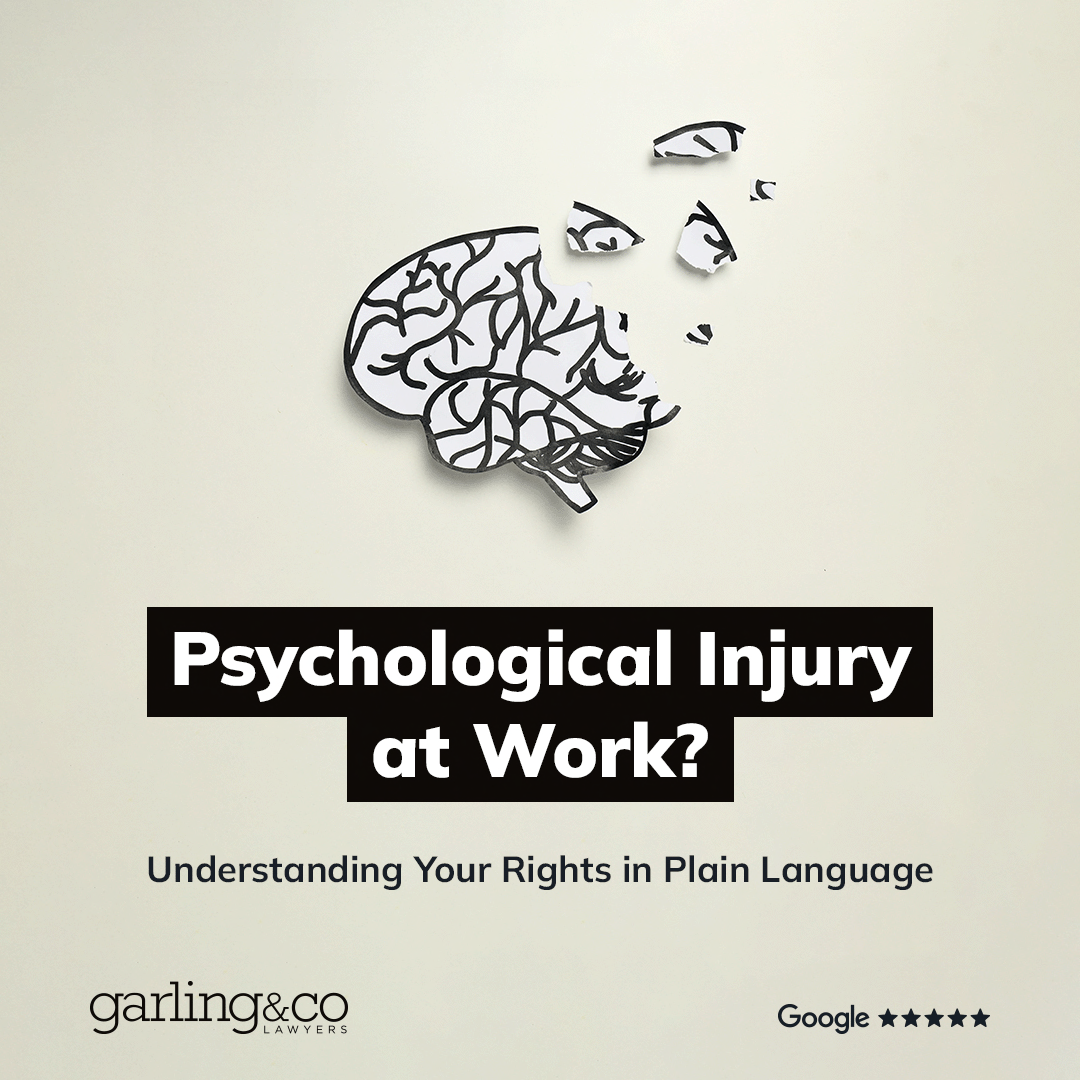
Psychological Injury at Work? Understanding Your Rights in Plain Language
What is a psychological injury?
Think of it as a mental or emotional harm caused by your job. This can include things like:
- PTSD: From a traumatic event like an assault at work.
- Anxiety and depression: Due to chronic stress, bullying, or harassment.
- Adjustment disorders: Struggling to cope with changes at work.
How do I know if I’m eligible for compensation?
The key question is: did your job play a major role in causing your injury? If yes, you may be entitled to compensation under the Workers Compensation Act 1987 (NSW).
Types of injuries:
The type of injury determines how your claim is handled. For:
- “Frank injuries” arise from a single traumatic event, like a robbery or assault. Think of them as instant impacts with a clear date.
- “Disease injuries” develop gradually due to repeated stressful events, such as bullying or long-term workload pressures. They’re like slow-burning fires, building over time.
Why does this matter?
- Frank injuries – the “date of accident” determines how your claim is handled and is usually easy to determine as it’s the date of the traumatic incident.
- Disease injuries – require a closer look at the gradual progression of symptoms and work history. For disease injuries, the “disease provisions” apply and the date of injury is usually the date you cease work due to the injury.
Key considerations for disease injuries:
- Section 4b: of the Workers Compensation Act 1987 (NSW): This defines disease injuries and requires that work was the “main contributing factor” for the aggravation or acceleration of the disease injury.
- A disease is defined as an aggravation, acceleration, exacerbation or deterioration in the course of employment of any disease, but only if the employment was the main contributing factor.
- In respect of an injury claimed as a disease, the Act requires consideration of the following factors:
- The time and place of the injury;
- The nature of the work performed and the particular task of that work;
- The duration of the employment;
- The possibility that the injury or a similar injury would have happened anyway at the same time or at the same stage of the workers life if she or he had not been at work or had not worked in that employment;
- The workers state of health before the injury and the existence of any hereditary risks;
- The workers lifestyle and his or her activities outside the workplace.
- Section 15 and 16 of the Act define a disease to be contracted by a gradual process and shall be assumed to have happed at the time of the worker’s death or incapacity or in the event there is no dealt or incapacity, at the time the claim for compensation is made.
- In situations, where the injury occurs over time, the last employer who employed the worker to which the disease was due, is liable to pay the compensation. This is an issue if you have a psychological injury caused by two or more employers.
Case example – Iman – v- NSW Police Force [2013] NSW WCCPD11
Former Deputy President Roach considered whether a psychological injury was a disease or a personal injury. In paragraphs 264 to 268 of the judgement, he noted that a disease is caused when the body is unable to repeatedly deal with the stress imposed upon it, the gradual process of a disease can “be acquired a little or a little more from day to day”.
Remember:
- Gather evidence: Detailed statements and chronologies outlining the injury’s progression, symptoms, and medical needs are crucial.
- Seek expert guidance: Consulting a specialist lawyer experienced in workplace psychological injuries is vital to navigate the complexities of your situation and maximize your claim’s potential.
Don’t feel overwhelmed! By understanding the different types of injuries, their legal implications, and the importance of evidence and expert support, you can confidently navigate this challenging phase and seek the compensation you deserve.
Contact an Accredited Specialist in Personal Injury Law at Garling and Co and start your journey to recovery today!












